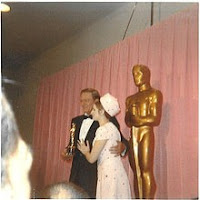
The story of Judy Garland is a magnificent example of the truth that life imitates art.
Things would surely have been different had she stuck to being Frances Ethel Gumm of Grand Rapids, Minnesota. As it was, the trajectory of her life under the stage name she assumed at the age of 12, as part of a travelling vaudeville act, had a blighted glamour more appropriate to verismo opera than to the cinema screen. Complete with an abusive father and drunken mother, five marriages, abortion and attempted suicide, the entire scenario transcended the wildest aspirations of melodrama. The irony of a drug overdose carrying off The Wizard of Oz's cute little Dorothy, mascot of can-do America, offered a final ghastly flourish to the story.
Death brought Garland a more dependable and continuous acclaim than she had enjoyed as a living celebrity. Her selfdestructive loneliness had already gained her a large following among homosexuals, who elevated her posthumously to gay-icon status. Other fans, such as Susie Boyt, who was just five months old when Judy died, embarked on a lifelong intimacy with the star, relying on her capacity to inspire as muse, patroness or alter ego, and defining existence by their empathy with her splendours and miseries.
My Judy Garland Life chronicles this kind of bizarre but wholly authentic-seeming relationship. Boyt is at pains to establish herself as being emphatically unlike Judy in almost every way. That her father is Lucian Freud seems to have prompted a reactive craving for ordinariness. She is fond of washing up, once worked in a shop, tried to please her teachers, won deportment badges at school and is evidently (without making too much of a fuss about it) an excellent wife and mother. Beyond this antitype, formed from everything which, at first glance, Garland was not, lies a less emotionally restrained persona, extravagantly responsive to the woman who is both her heroine and in some sense her long-desired sweetheart.

The book is essentially an autobiography viewed through the prism of Garland-worship. 'Judy makes me feel extraordinary things, ' declares Boyt; 'she allows me to view the world in a way that I like, but scarcely dare. She's not a problem I wish to solve and nor am I.' She sets up a supposed encounter with her in a drycleaner's, along the lines of Henry James's story 'In the Cage', at the same time imagining a meeting in a sanatorium between the damaged star and the drinksodden poet, John Berryman, an episode which Boyt, an experienced novelist, deftly fashions into a short story. She has fun dressing up in Judy's leopardskin hat and muff, and visits the grave in Westchester, New York, where her friend, Marc, cleans the tombstone with vodka in honour of 'the Mightiest Lady of our time'. Her yearning for Judy becomes a dress 'cut on the bias, which sparkles, glossy and sequinned under lights pink and amber'.
In all its ardour and spontaneity, My Judy Garland Life is one of this year's most original books. Mercifully we do not need to share Boyt's adoration, or indeed to give a rap for Judy, living or dead, to enjoy its insights, hankerings and revelations. As a record of the sort of borrowed world few of its readers are likely to have entered with such wide-eyed intensity it appears uniquely memorable.(source)


